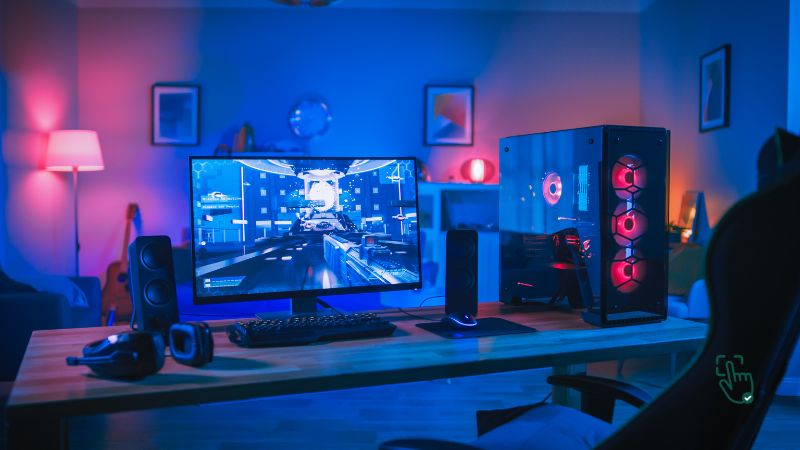
Shopping for the best Linux Notebook can feel like hunting for a unicorn in a field of horses. Sure, most laptops are built with Windows in mind, and let’s not even get started on MacBooks. But a solid Linux notebook? Now that’s a gem! Whether you’re a developer, an open-source enthusiast, or just someone who loves customization, finding a Linux-compatible notebook is a game-changer. Here’s everything you need to know to pick the perfect one.
What’s a Linux Notebook?
A Linux Notebook is a laptop that either comes pre-installed with a Linux operating system or is fully compatible with popular Linux distributions (distros) like Ubuntu, Fedora, or Arch. Unlike Windows or macOS, Linux is an open-source platform, offering unmatched flexibility and freedom to tinker. The result? A streamlined, bloat-free experience tailored to your needs.
Why Choose a Linux Notebook?
Let’s break it down:
- Freedom to Customize
Linux lets you take control of your system. Want a sleek, minimalist interface? Go for GNOME or KDE. Need a lightweight option? Xfce or LXQt is your best friend. - Privacy and Security
Say goodbye to intrusive ads and spyware that plague other OSs. Linux is built with privacy at its core, making it perfect for anyone concerned about data tracking. - Open-Source Goodness
Love free software? Linux notebooks allow you to access a vast library of open-source tools, from productivity apps to gaming platforms. - Performance Boost
Linux is lightweight, meaning it can breathe new life into older hardware or make high-end laptops run faster.
Best Linux Notebooks in 2025
1. System76 Lemur Pro
If you’re looking for a Linux laptop that just works straight out of the box, the System76 Lemur Pro is a beast. System76 is one of the few companies that build laptops specifically for Linux, so you won’t have to worry about driver compatibility or weird glitches. This machine comes pre-installed with Pop!_OS, a powerful Ubuntu-based distro that’s optimized for developers and power users.
What really sets the Lemur Pro apart is its lightweight design and impressive battery life. This thing is built for portability, making it a great pick if you’re constantly on the move. Performance-wise, it can handle anything from coding to light gaming, and it’s customizable to fit your needs. But here’s the catch—it’s not the cheapest option out there. If you’re on a budget, this one might make you think twice.
✅ Pros: Pre-installed Pop!_OS, lightweight, long battery life
❌ Cons: Pricey compared to alternatives
Related Products:
- System76 Gazelle
- TUXEDO InfinityBook Pro
- Star Labs StarBook Mk VI
2. Dell XPS 13 Developer Edition
The Dell XPS 13 Developer Edition is what happens when a big brand actually listens to Linux users. Dell has been offering Linux pre-installed machines for years, and this latest version is easily one of the best. It ships with Ubuntu out of the box, so you won’t have to mess with installing Linux yourself.
One of the biggest reasons to love this laptop is its premium build and stunning display. The edge-to-edge screen is just gorgeous, and it’s super compact, making it ideal for travelers or minimalists. However, if you’re the type who loves upgrading your machine, you might feel a little restricted—the XPS 13 has limited upgrade options for things like RAM and storage.
✅ Pros: Sleek design, pre-installed Ubuntu, excellent display
❌ Cons: Not the best for upgradability
Related Products:
3. Lenovo ThinkPad X1 Carbon Gen 10
Ask any Linux power user or developer about their favorite laptops, and chances are they’ll mention a ThinkPad. The Lenovo ThinkPad X1 Carbon Gen 10 continues that tradition, bringing top-tier performance, a stellar keyboard, and Fedora pre-installed. The ThinkPad keyboard is legendary, and if you spend all day coding or writing, you’ll love how comfortable it feels.
The durability and build quality are also worth mentioning—this thing is tough and will last you for years. But, as expected with premium laptops, the high-end features come with a high-end price tag. And if you want extra RAM or storage, be prepared to spend even more.
✅ Pros: Fedora pre-installed, durable, fantastic keyboard
❌ Cons: Expensive, costly upgrades
Related Products:
4. Purism Librem 14
If security and privacy are your top priorities, the Purism Librem 14 is in a league of its own. This laptop is built with privacy-first hardware, featuring hardware kill switches that let you physically disable the webcam, microphone, and WiFi for extra security. It runs PureOS, a Debian-based distro designed to be as secure and open-source as possible.
This is a fantastic choice if you’re in cybersecurity, ethical hacking, or just don’t trust Big Tech with your data. The downside? It’s not widely available, and since Purism is a niche company, you might have to wait longer for shipping. Plus, the price is a bit steep for a machine that prioritizes privacy over raw performance.
✅ Pros: Privacy-focused, PureOS pre-installed, hardware kill switches
❌ Cons: Limited availability, pricey for its specs
Related Products:
- TUXEDO InfinityBook 14
- Star Labs StarLite
- Librem Mini v2
How to Pick the Best Linux Notebook for You
- Pre-Installed Linux vs. DIY Install
- If you’re tech-savvy, any laptop can become a Linux notebook. However, pre-installed options save time and ensure compatibility.
- Hardware Compatibility
- Not all hardware plays nicely with Linux. Check for laptops with supported drivers for Wi-Fi, graphics, and peripherals.
- Purpose Matters
- Are you a developer? Gamer? Casual browser? Your use case will dictate whether you need a high-end machine or a budget-friendly option.
Where to Buy a Linux Notebook?
For pre-installed Linux notebooks, check out brands like System76, Dell, and Lenovo. Major online retailers like Amazon and Best Buy also offer Linux-compatible laptops. If you’re DIYing it, make sure to check forums or compatibility lists for your desired distro before purchasing.
When Is a Linux Notebook Worth It?
Linux notebooks shine for programming, data analysis, cybersecurity, or anyone tired of proprietary OS restrictions. They’re also ideal for extending the life of older hardware or running lightweight distros on budget machines.
The Not-So-Great Side of Linux Notebooks
While Linux is amazing, it’s not perfect:
- Learning Curve: If you’re coming from Windows or macOS, Linux might feel overwhelming at first.
- Software Compatibility: Some popular apps (like Adobe Creative Suite) don’t natively run on Linux. You’ll need alternatives or emulators like Wine.
- Limited Pre-Built Options: While the market is growing, there aren’t as many pre-installed Linux notebooks compared to Windows ones.
Final Verdict: Which Linux Notebook Should You Choose?
For a seamless Linux experience, you can’t go wrong with the System76 Lemur Pro or Dell XPS 13 Developer Edition. If security is your priority, the Purism Librem 14 is unbeatable. On a budget? Consider a refurbished ThinkPad and install Linux yourself.



